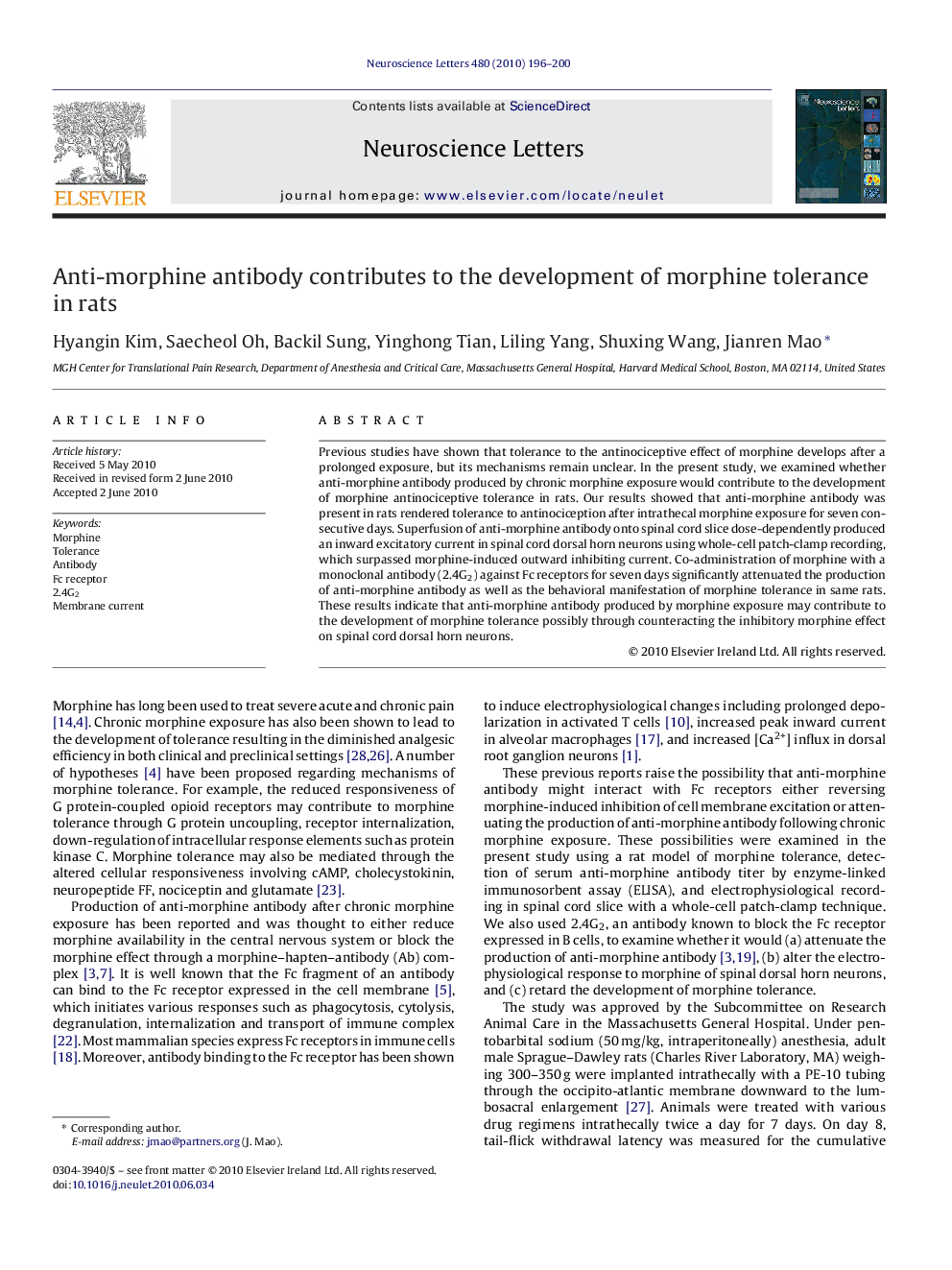| Article ID | Journal | Published Year | Pages | File Type |
|---|---|---|---|---|
| 4345854 | Neuroscience Letters | 2010 | 5 Pages |
Abstract
Previous studies have shown that tolerance to the antinociceptive effect of morphine develops after a prolonged exposure, but its mechanisms remain unclear. In the present study, we examined whether anti-morphine antibody produced by chronic morphine exposure would contribute to the development of morphine antinociceptive tolerance in rats. Our results showed that anti-morphine antibody was present in rats rendered tolerance to antinociception after intrathecal morphine exposure for seven consecutive days. Superfusion of anti-morphine antibody onto spinal cord slice dose-dependently produced an inward excitatory current in spinal cord dorsal horn neurons using whole-cell patch-clamp recording, which surpassed morphine-induced outward inhibiting current. Co-administration of morphine with a monoclonal antibody (2.4G2) against Fc receptors for seven days significantly attenuated the production of anti-morphine antibody as well as the behavioral manifestation of morphine tolerance in same rats. These results indicate that anti-morphine antibody produced by morphine exposure may contribute to the development of morphine tolerance possibly through counteracting the inhibitory morphine effect on spinal cord dorsal horn neurons.
Related Topics
Life Sciences
Neuroscience
Neuroscience (General)
Authors
Hyangin Kim, Saecheol Oh, Backil Sung, Yinghong Tian, Liling Yang, Shuxing Wang, Jianren Mao,
